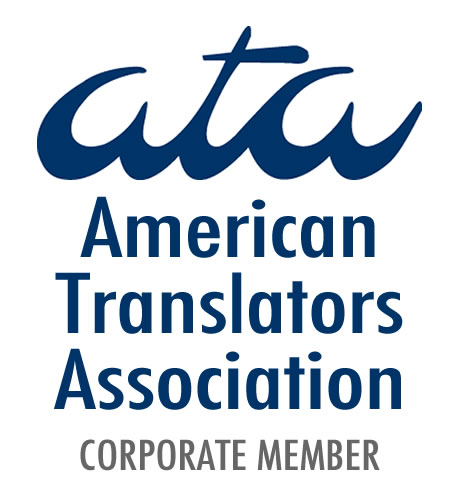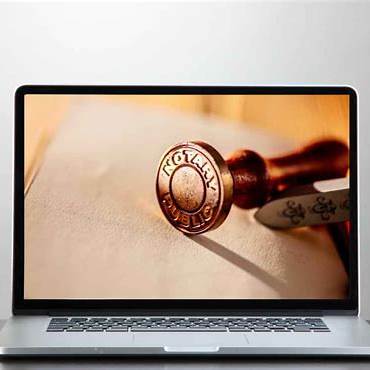Hello Affiliates,
More and more, we’re seeing our community get involved in various types of translations beyond standard immigration documents.
We’ve talked a lot about Spanish sworn translations, given how popular Spain is for Americans looking to live, work, or retire abroad.
Another equally interesting destination is Italy. “La dolce vita” has always captivated Americans, but the famed Italian bureaucracy can be a challenge.
We’ve been receiving more and more requests from affiliates looking for “sworn Italian translations,” as requested by Italian authorities.
Can we assist? And what is required? It’s important to remember that this process is different from a sworn translation for Spain.
What is a Sworn Italian Translation?
In the US, a certified translation is typically signed by the translator or translation company (sometimes with a digital signature) and may be notarized as well.
However, this type of certified translation has no legal value in Italy for official purposes.
The only official form of translation accepted by Italian authorities is a sworn translation.
For a translation to have legal validity, the translator must appear in person before a Court or a civil-law notary to swear that the translation is faithful to the original text.
This oath is then signed and stamped by the sworn translator and the court official.
This process is highly specific and physical. The original document (or a printout), the translation, and the sworn statement are all stapled together and must remain stapled to be valid.
In addition, revenue stamps must be purchased and affixed to the document, with the number of stamps required depending on the length of the translation.
Examples of Documents
Sworn Italian translations are typically required for official documents such as:
- Italian citizenship applications
- Foreign marriage registrations
- Foreign birth registrations
The Apostille: A Critical First Step
One key detail to be aware of is the apostille. The apostille must be translated and sworn as well, otherwise the document will not have legal validity in Italy.
Some Italian recipients require that an apostille be affixed to the original document in the U.S.
before the sworn translation is done.
How to Facilitate This Service
When a client approaches you for this service, you need to ask them a few key questions to prepare for the translation.
- Request all documents: Ask for a full scan of all documents that need translation, including the front and back.
- Clarify the purpose: The translator needs to know the exact purpose and recipient of the documents in Italy.
- Determine if originals are needed: The client’s recipient in Italy may require the original documents to be stapled to the sworn translation. In that case, the client will need to ship the originals to our translator. The choice between originals and printouts is not up to the client, but depends on the recipient.
Once the process is complete, the translator can send a scanned PDF copy of the sworn translation, with the physical copy to follow in the mail.
We are here to help and want to assist however we can.
Our goal is clear: to become the best affiliate program internationally for notaries and apostille facilitators.
Questions? Comments? Please get in touch with us at [email protected].
Even better yet, schedule a 1-on-1 with me here.
Gabe and the Idiomatic Affiliates Team
Italian Sworn Translations FAQ
That’s an excellent question, as the legal terminology in civil law countries like Italy is often very different from that in common law countries (like the U.S. or U.K.).
Here is a breakdown to help you understand the concepts of a “civil law notary” and a “sworn translation” in the Italian context:
1. What is a Civil Law Notary (Notaio)?
A Civil Law Notary (in Italy, a Notaio) is a highly trained and licensed legal professional who is also a public officer of the state.
- Public Officer: Unlike a common law Notary Public (who primarily just verifies signatures), an Italian Notaio is vested with the power of the State to authenticate legal instruments.
- Highly Trained: The Notaio is a lawyer specializing in non-contentious private civil law (like property, corporate, and inheritance law). They must pass a highly competitive exam and are required to provide legal advice and ensure the legality of a transaction.
- Authentication: When a Notaio drafts or authenticates a deed (atto notarile), that document is considered an “authentic deed” and has privileged evidentiary strength in court. The Notaio is responsible for checking the parties’ identities, legal capacity, and that the agreement complies with all applicable laws.
- Role in Sworn Translation: In some cases, a sworn translation can be sworn before a Notaio instead of a court official, as they also possess the necessary public authority.
2. What court would I go to for this?
A “sworn translation” (traduzione giurata or traduzione asseverata) is a specific legal procedure in Italy where the translator appears in person to take an oath of accuracy.
- The Court: The oath is typically sworn before a court official (like a clerk) at a Law Court (Tribunale) in Italy.
- The Procedure: The translator presents the original document, the translation, and a formal Oath Statement (verbale di giuramento). They then sign the oath, swearing that the translation is a “faithful and true copy of the original text,” thereby taking on civil and criminal liability for its accuracy.
- Flexibility: The oath can generally be sworn at any Law Court in Italy, regardless of where the translator lives or where the document will be used. As mentioned above, in some circumstances, the oath can also be sworn before a Notaio.
3. Does “sworn” translate to a notarized document by a commission registered notary?
No, not in the common law sense.
The term “sworn translation” has a higher legal standing than a standard “notarized translation” in countries like the US or UK.
Italian Sworn Translation (Traduzione Giurata)
Common Law Notarized Translation
Authority
The translator swears an oath of accuracy before an Italian Court Official or a Civil Law Notary (Notaio).
A Notary Public verifies the translator’s signature and identity—they do not verify the accuracy of the translation itself.
Legal Weight
High. It is an official document with legal validity, and the translator assumes civil and criminal liability for the accuracy.
Medium. It proves the translator signed the document, but not that the translation is accurate.
In short, when Italy requires a sworn translation, they need the specific procedure where the translator takes a legal oath before an Italian court or a Notaio—it is not satisfied by a simple signature witnessing by a common law Notary Public.



Leave a Reply